A life-changing decision lies before me: ally with the dominant trading nation and secure my country’s economic future or defend the oppressed minorities that same nation has vilified and exploited for years. My actions will have irreversible effects and potentially force a split in my own party, but there’s no time to waste. So I take the only logical action: I whip out a set of scales, force everyone to talk to me, and make them decide what happens next.
This is how we resolve major dilemmas in Triangle Strategy, and while the Scales of Conviction might seem silly on the surface, they belie a brilliantly conceived tactics game with a surprisingly deep and well-executed story.
Triangle Strategy Review: Triple Threat
Norzelia, the continent on which Triangle Strategy takes place, is a small place with three ruling powers: Hyzante, the theocracy; Aesfrost, brutal warmongers; and Glenbrook, seemingly placid on the surface with fatal currents of treachery underneath the surface. The story centers around Serenoa, recently named lord of House Wolffort, one of Glenbrook’s high houses, as Aesfrost invades his country and shatters decades of peace.
The setting and setup might seem like standard RPG fare, but after its rather slow opening chapters, Triangle Strategy routinely surprised me with the directions it takes. At its heart, Triangle Strategy is a dark, multifaceted tale of oppression, skewed morality, and, to a slightly lesser extent, dealing with the consequences of your actions.
Take an incident roughly halfway through as an example. You uncover evidence that a minister of Hyzante is engaged in illegal salt trading. Hyzante controls the only source of salt in Norzelia, leading to severe trade imbalances, resentment, and an unwillingness for anyone to oppose Hyzante’s oppression of racial minorities.
You have a choice: expose the minister, which opens a position of influence for Serenoa in Hyzante, or help him in his crimes. There’s seemingly no morally correct path. The minister may be breaking laws, but illegal salt often sells for a lower price, making it more affordable to the average person – and deadlier, if a middleman in between cuts it with another less savory substance.
Each major choice splits the main story in at least one way, though all paths eventually meet again at the end. Outside the “true” route, no choice made except in a late-game chapter bars you from obtaining a certain ending. It’s a well-conceived design choice that gives you substantial variation in how the story unfolds and makes it possible to see all routes without becoming unwieldy.
Triangle Strategy mixes the high politics and fantasy with a poignant set of character stories, though it’s a bit more complicated here. The primary group rallying around Serenoa as the new Lord Wolffort, including his Aesfrosti bride-to-be Frederica, is a ragtag bunch thrust into the heart of an international conflict.
They say little on the broader subject outside the specific events at hand, and you learn less about them as people, but I still found myself attached to the little group and its closeness borne of strife. Some imagination is required to fill in the gaps, though. This is very much a case of characters playing a role in the story instead of a character-driven story.
It works for the main cast, but it’s a problem for the recruitable characters. These show up with a brief side story introducing them and their motivations, and then you essentially never hear from them again. They don’t turn up in exploration segments, can’t take part in voting, and have no further side stories. It’s a shame. Triangle Strategy has an eccentric and endearing cast of characters, and it’s a slight disservice that they never get a chance to develop or even talk.
Speaking of voting, it and the Convictions system it revolves around are much more interesting than the scale setup would suggest. What seems like a vague feature that levels up at random is actually governed by an involved set of rules. You don’t get to see how the Convictions system works until your second playthrough, where the affiliation of each action and how many points they afford appears in place of the usual pop-up saying you strengthened your Convictions.
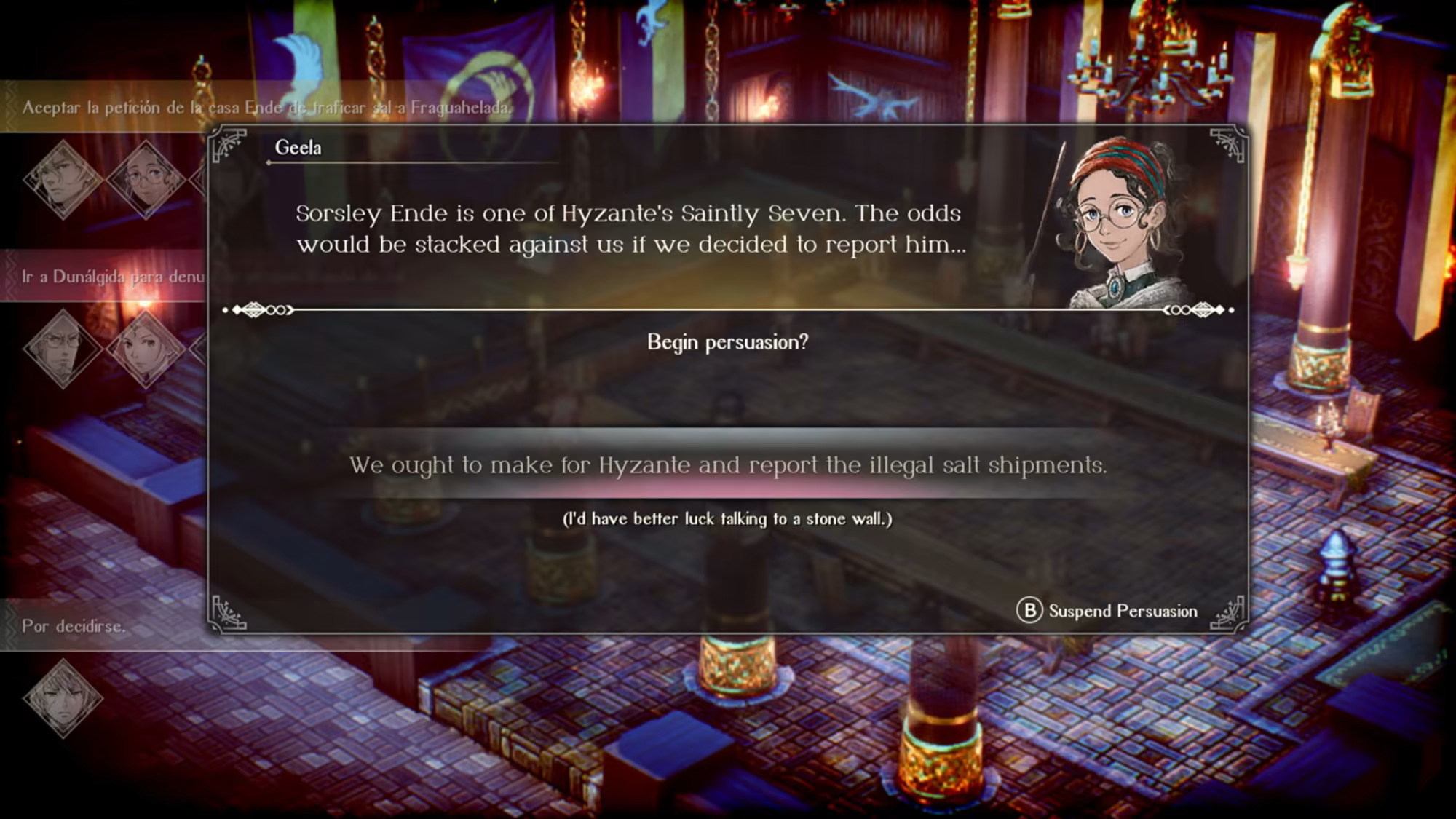
It’s a clever way of putting you in the protagonist’s place, encouraging you to choose the actions you believe in without knowing what outcome they might lead to, and then you’re free to min-max and manipulate the voting system next time if you want.
Voting and the Scales of Conviction seemed like a gimmicky conceit in both demos, and after finishing the game, I still think it stands out awkwardly. Casting lots or even allowing everyone to vote audibly, a la the Dark Assembly in Disgaea, would have the same effect without the ceremony. Yet Triangle Strategy treats these segments with such solemn importance that it’s hard not to get drawn in, and the complexity of the pre-vote conversations more than makes up for the slight silliness.
Votes determine which story path you’ll take in certain chapters, and with the right approach, you can convince others to follow your way of thinking. “The right approach” is usually not something you’ll hit on immediately, though. Speaking with others during exploration segments unlocks new conversation options, but it’s more involved than just using secret knowledge to bully everyone into your way of thinking.
Each member of House Wolffort holds onto their convictions as strongly as you do yours, and you’ll need a sensible argument to try and change their minds.
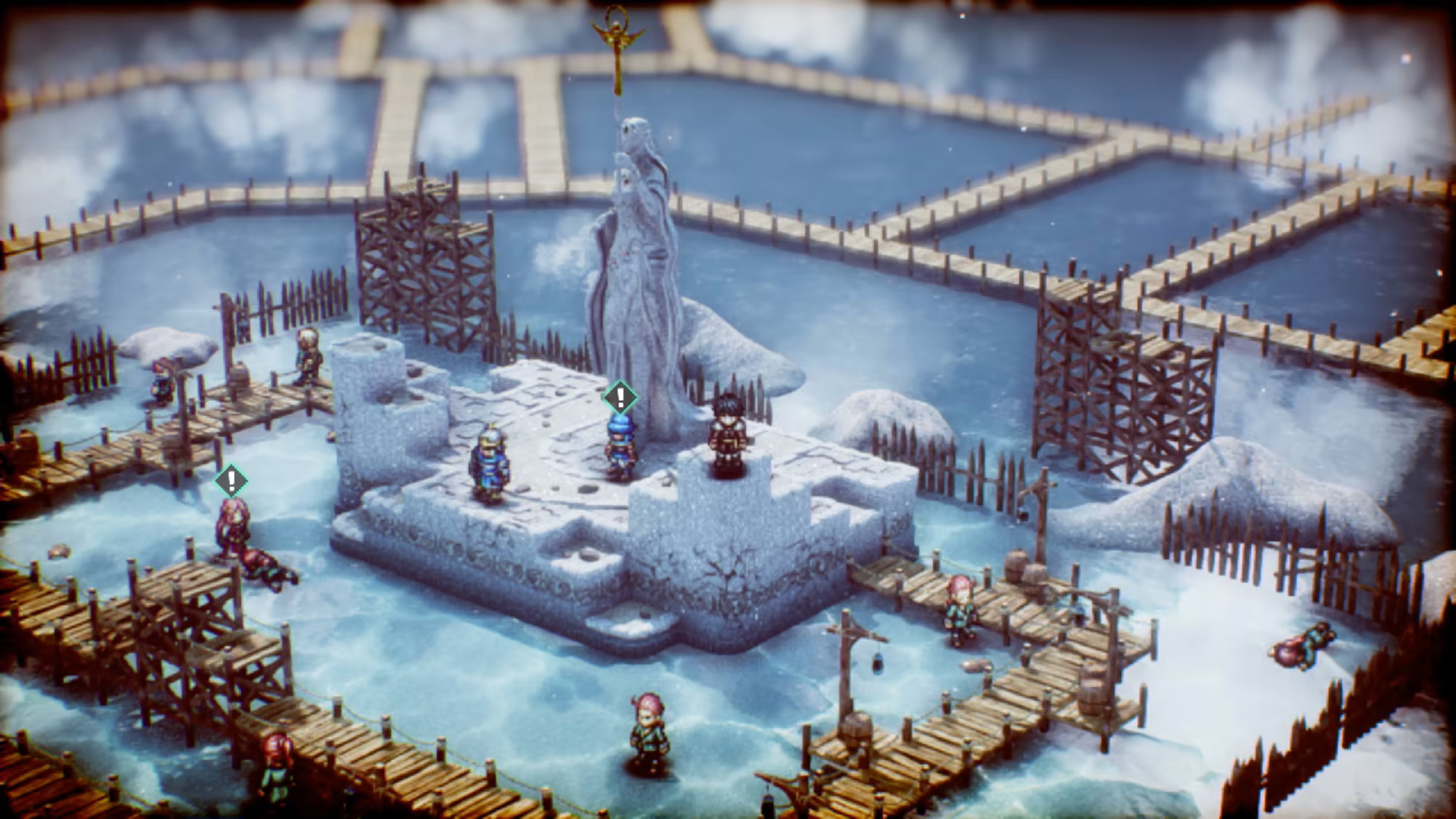
Triangle Strategy is equally inventive on the battlefield, though it holds back perhaps a touch too much. It’s closer to a Divinity: Original Sin hybrid than a straight-up tactics game, with a heavy emphasis placed on how elemental attacks affect the environment and individual units. Freezing a square slows units and reduces accuracy, for example.
You can also follow it up with a fire attack to melt the ice, then a thunder attack to electrify the puddle. Or you can lure enemies into a bottleneck, use oil on the tiles, and light it aflame.
It makes positioning more important than most tactics games as well. Attacks from the back deal more damage, as you’d expect, but it goes deeper than that. There’s a staggering number of ways you could approach most encounters – herding enemies into danger zones, using Wind spells to change their positioning, or chaining critical hits depending on how you place your units.
That’s just dealing with the main bunch. Each recruitable character brings their own unique skillset that changes how you approach battles more than you might think. The Sage eventually learns magic of each element, so you can bench your fire and ice mages. One character has a healing area of effect skill, while another powers up your attack items, making it possible to not use magic at all. It’s incredibly rich and rewarding, and, combined with the multiple story routes, it easily lends itself to multiple unique playthroughs.
The only drawback is it takes several chapters before it feels like these systems really come into their own thanks, in part, to the slow pace at which skills unlock. Early stages are also a bit too straightforward, though things get more interesting around chapter six and then much more interesting from then on. Some of Triangle Strategy’s mid- and late-game stages are truly excellent, and it makes me hopeful a sequel of some kind is in store – Hexagon Tactics perhaps?
Triangle Strategy Review: The Bottom Line
Pros
- Deep story.
- Deeper tactics system.
- Excellent character abilities.
- Clever stage design.
- Inventive alignment system.
- Meaningful choices.
- Those HD-2D graphics [insert heart-eyes emoji].
Cons
- Most characters don’t get a chance to develop.
- Takes a while for the systems to finally shine.
Triangle Strategy has in abundance the three things any tactics game needs to succeed: story, systems, and style. Whatever its shortcomings in character development and pacing in the first half, they’re easy to overlook. This is easily one of the smartest and most interesting tactics games to release in years, and one I’ll be playing for a long time to come.
[Note: Nintendo of America provided the copy of Triangle Strategy used for this review]

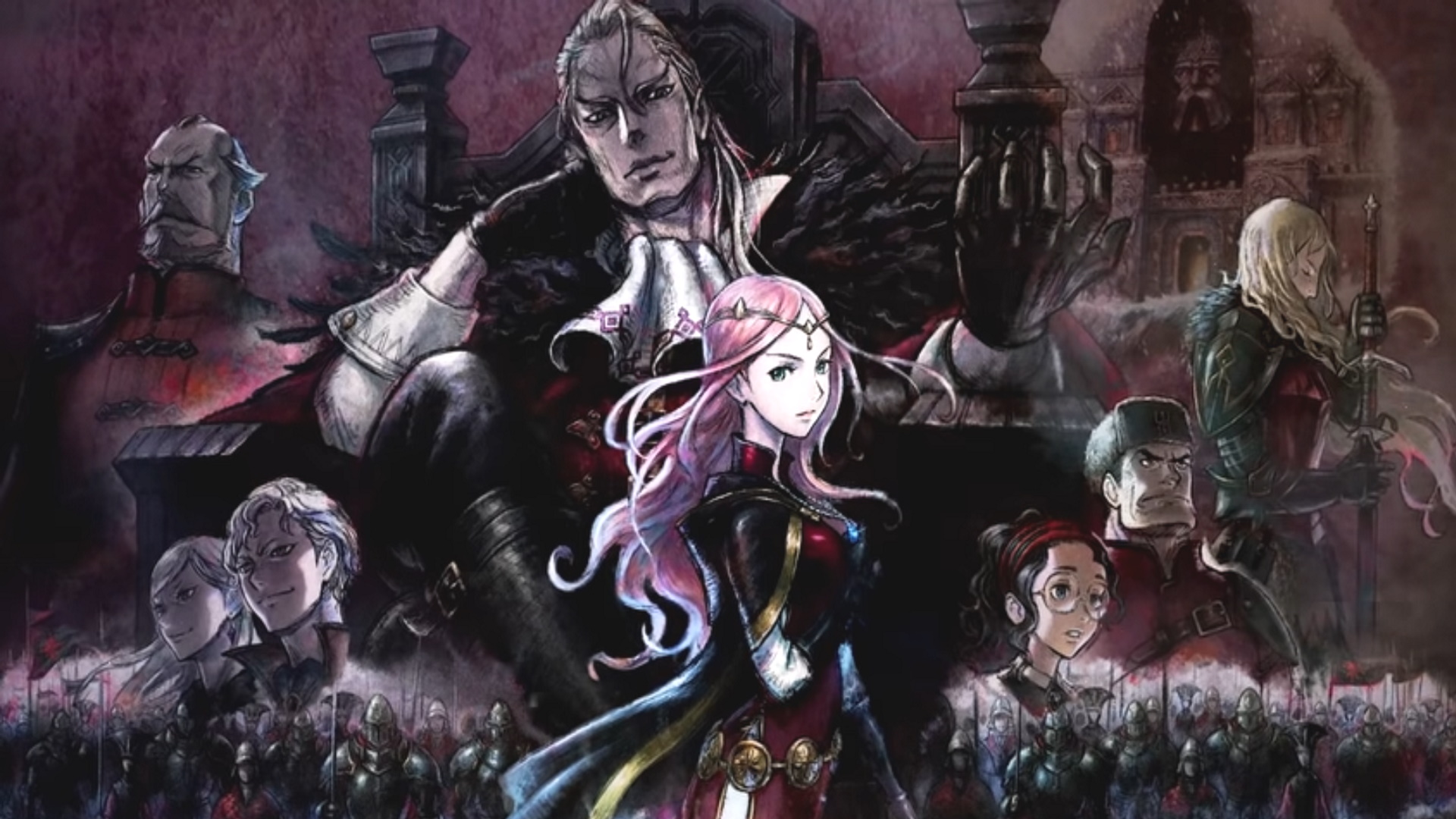
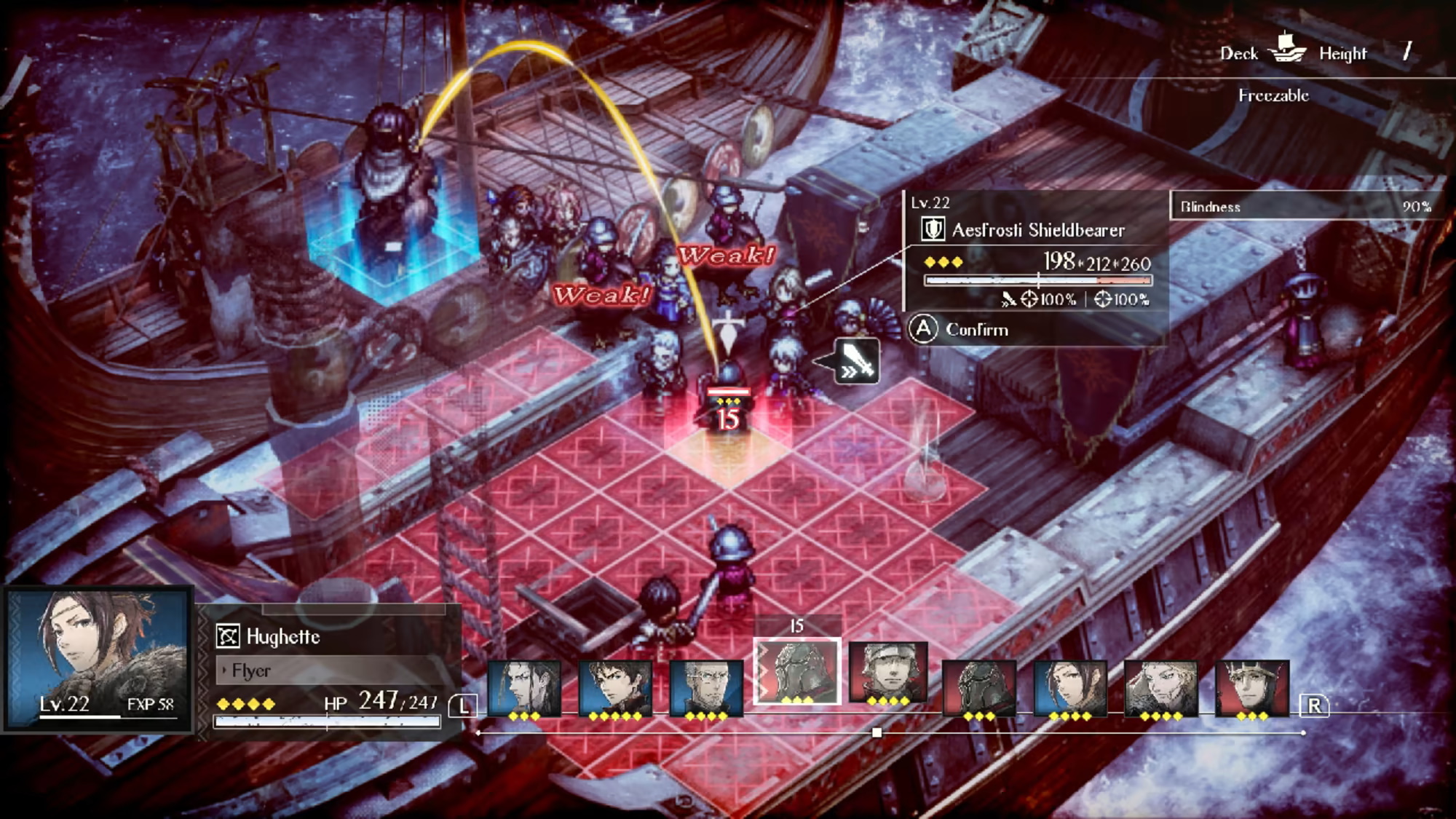
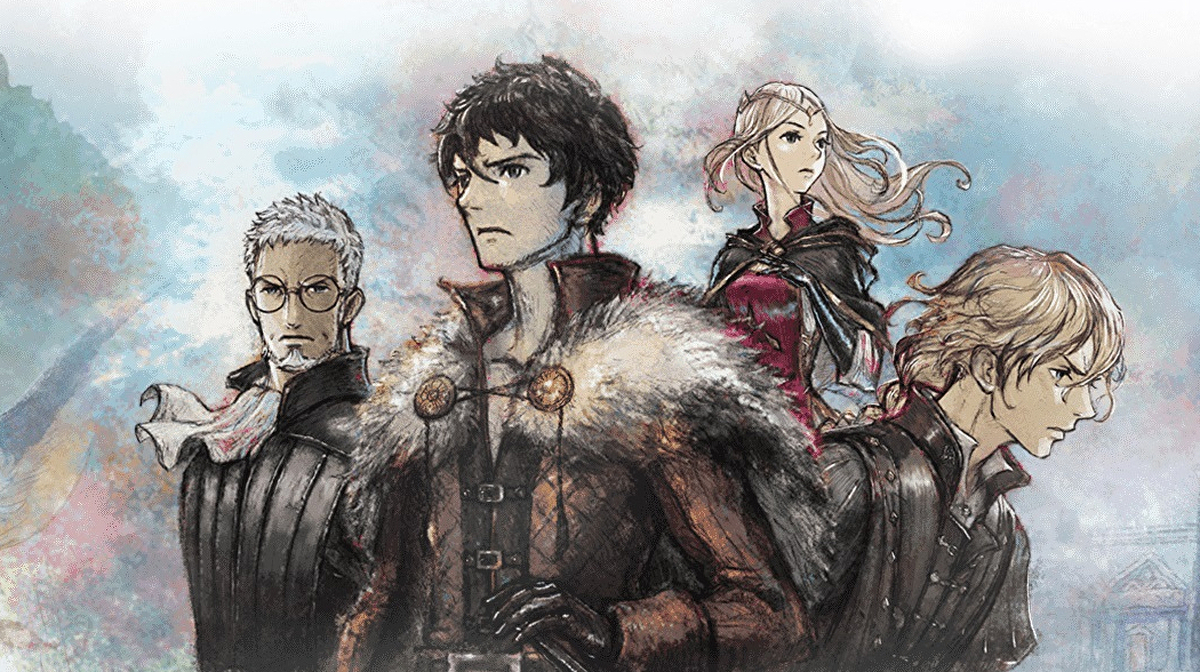





Published: Mar 14, 2022 10:10 am